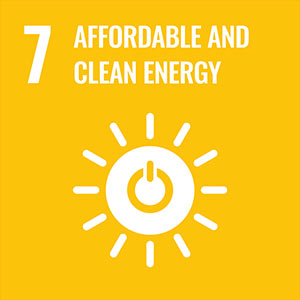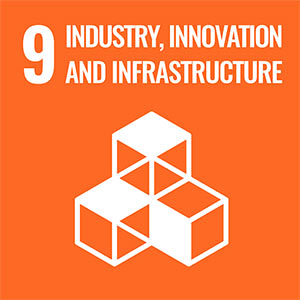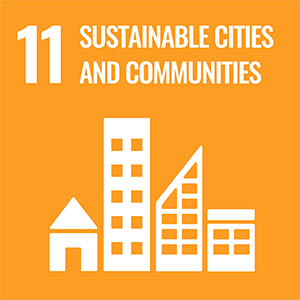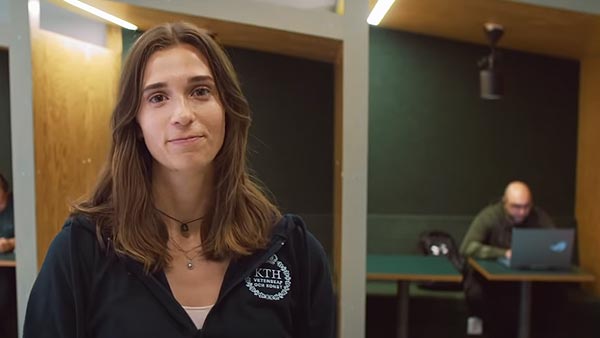MSc Decentralized Smart Energy Systems
Decentralized smart energy systems play a vital part in the transition towards a low carbon society by integrating renewable energy sources in the energy system. Students in the programme acquire skills to design, size, optimize and operate these energy systems. Graduates have a holistic overview of decentralized energy systems, specialized competencies in energy engineering and a strong international network.

Decentralized Smart Energy Systems at KTH
The overall goals of the Erasmus Mundus Joint Master Degree “DENSYS” are the following:
- educate top skilled engineers with multi-physics approaches, who will be able to design, size, optimize and operate decentralized smart energy systems, with a sufficient level of systemic overview, which enables analyzing the complex interactions in energy systems,
- train future researchers (for both public and private sectors), as decentralized energy systems still require strong R&D investments, at the system scale (smart management), at the component scale (e.g. optimization of the lifespan, energy efficiency or density) and at the elementary mechanisms scale.
- train highly-qualified students to contribute optimally to this field by providing a “T-shaped*” multinational educational profile. The vertical bar of the T representing the depth of skills and expertise in the mechanical, chemical and electrical engineering disciplines, while the horizontal bar represents a more general understanding of other disciplines, creating an ability to account for the complexity of decentralized energy systems and to work with experts in other areas of expertise.
- provide to students an international network as well as a genuine European learning, an integrated cultural and language experience.
The two-years 120 ECTS programme is jointly built with four academic partners across Europe:
- University of Lorraine - UL in Nancy (France)
- KTH, Royal Institute of Technology – KTH in Stockholm (Sweden)
- Polytechnic University of Catalunya - UPC in Barcelona (Spain)
- Polytechnic Institute of Torino - Polito (Italy)
The programme is enhanced by a wide range of associated partners from international universities, SMEs, large industries and other EU consortia. The programme includes an integrated mobility scheme, with the first year in UL, where students master the physical principles and the governing parameters of the main renewable energy sources, energy storage technologies, conversion systems between energy carriers applied to the control and optimization of smart multi-carrier decentralized energy systems. The third semester is spent either at KTH, UPC or PoliTo where students specialize respectively in integration of decentralized energy systems in a global energy system, thermal energy engineering or energy storage by power-to-X. The fourth semester corresponds to an internship/MSc thesis particularly offered by DENSYS associated partners, either in the industry sector or in a research institution. Two joint summer schools will be organized for networking and to expand students’ transferable skills like business and entrepreneurship, or more technical skills like energy storage, hydrogen or energy systems modelling. In addition, an immersive week in University of Liège (Belgium) will provide sound knowledge in the use of artificial intelligence to manage energy networks. To expand students’ vision, a large range of breadth courses will be proposed, including social sciences and humanities dealing with energy policy-making, geography, social acceptance, risk perception, finance, business, together with an integrated cultural and language experience. A significant part of the pedagogy will rely on case and challenge based modules (large multidisciplinary and multi-objective projects), taken from real life and involving partners from the industry and civil society (policy makers, local stakeholders, associations…).
For students choosing to carry out the 3rd semester at KTH, double master degrees will be awarded from UL and KTH.
Sustainable development
Graduates from KTH have the knowledge and tools for moving society in a more sustainable direction, as sustainable development is an integral part of all programmes. The three key sustainable development goals (SDGs) addressed in the Erasmus Mundus master's programme Dencentralized Smart Energy Systems are:



- SDG7 (Affordable and Clean Energy) is addressed in the courses Renewable energy technology, Key technologies of DES and Energy conservation processes, and Energy Data Balances and Projections.
- SDG9 (Industry, Innovation and Infrastructure) is covered in the courses Materials for energy conversion, Energy transition and territories, Green Building Concept Design Construction and Operation, Energy storage and Energy System Economics.
- Programme courses that address SDG11 (Sustainable Cities and Communities) include Smart and flexible Energy management, Life cycle analysis, Global energy markets and systems in transition.
The overarching approach to these SDGs are further attained through the challenge based projects where students collaborate closely for 1 full year with industrial partners on real case challenges in the field of decentralized smart energy systems.
Decentralized smart energy systems play a vital part in the transition towards a low carbon society by integrating renewable energy sources in the energy systems. Students in the programme acquire skills to design, size, optimize and operate these energy systems. Graduates will have a holistic overview of the decentralized energy systems, specialized competencies in energy engineering and a strong international network.
Associated partners and career opportunities
A number of associated partners have joined force with DENSYS Erasmus Mundus programme, students will have the possibility to work with them during and after the curriculum of the programme.
Companies
- ArcelorMittal, France
- ENGIE EPS, Italy
- IREN, Italy
- IRESEN, Morocco
- John Cockerill, Belgium
- KEMIWATT, France
- NATURGY, Spain
- Ranator, Sweden
- Sunthetics, Sweden
- Termofluids, Spain
- Vattenfall, Sweden
- EUA, Belgium
- EIT Innoenergy
Universities
- University of Liège, Belgium
- Esade Business School, Spain
- Universidad de la República, Uruguay
- EAFIT, University of Medelin, Colombia
- Université internationale de Rabat, Morocco
- Shahid Beheshti University, Iran
- University of Carthage, Tunisia
- University El Manar of Tunis, Tunisia
- National Taipei University of Technology, Taiwan
- King Mongkut's University of Technology North Bangkok, Thailand
Read more on the and apply on the DENSYS website



